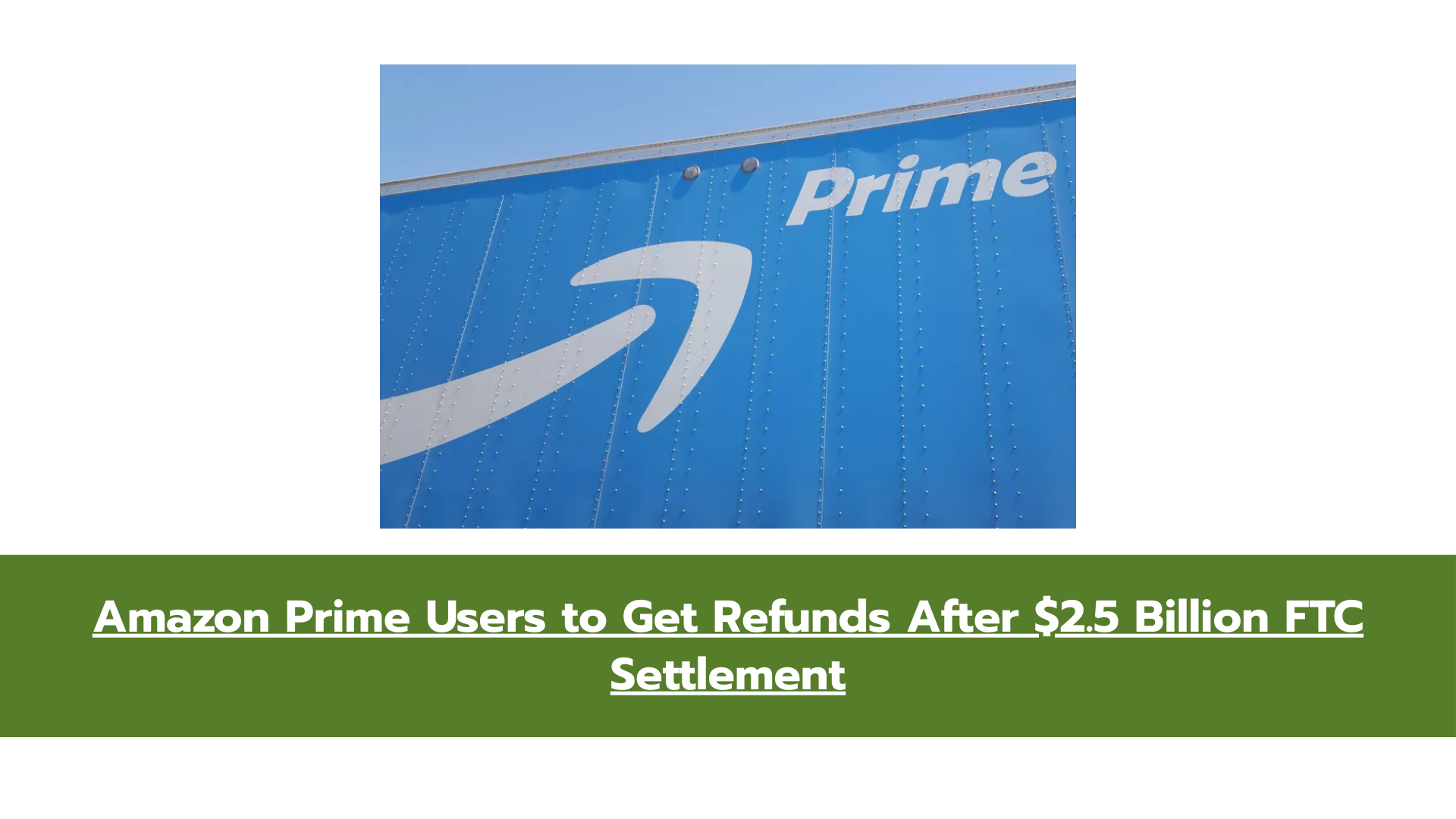Amazon, one of the biggest technology companies in the world, has agreed to a $2.5 billion settlement with the Federal Trade Commission (FTC) in the United States. This decision is being called a landmark moment as it directly challenges how digital platforms design their services and treat consumers. The case mainly revolved around how Amazon Prime pushed users into subscriptions and made cancellations very difficult.
Breakdown of the Settlement
The settlement includes two big parts:
- $1 billion civil penalty
- $1.5 billion for consumer refunds
Customers who rarely used Amazon Prime will automatically get $51 as a refund, while others can apply separately for compensation. Though the amount may look small for individuals, it carries strong symbolic value, showing that even the largest corporations can be held accountable.
Why the FTC Took Action
The FTC argued that Amazon used “dark patterns” – design tricks that pushed people to sign up for Prime without fully realizing it. Cancelling the subscription was also made unnecessarily complicated. FTC Chairman Andrew Ferguson clearly explained that such practices reduce consumer choice and mislead users.
Amazon’s Response
Amazon accepted the settlement but denied any wrongdoing. A company spokesperson said the brand always follows the law and now wants to focus more on innovation. This kind of statement is common in Big Tech, as companies like Google and Apple have also used similar strategies in their legal battles to protect their reputation.
Public and Political Reaction
The case quickly became a cultural discussion rather than just a legal one. Politicians like Elizabeth Warren said the settlement was “just the beginning.” Celebrities such as Kim Kardashian even shared consumer advice about subscription safety, turning this into a public debate.
Impact on Consumers
Many consumers sign up for free trials or streaming platforms without realizing how hard it is to cancel. The settlement will force Amazon to make cancellations easier, clearer, and faster. This is expected to help millions of users avoid unnecessary charges in the future.
Global Impact
Regulators in other countries, especially in the European Union, are closely watching this case. Amazon is already facing antitrust issues there. Experts believe this ruling could push global reforms, forcing even smaller companies to rethink their subscription models.
Big Tech Accountability
The settlement is not just about money—it’s also about holding billionaires and big corporations responsible. Jeff Bezos, though no longer Amazon’s CEO, is still linked with its image. Just like Elon Musk or Mark Zuckerberg, Bezos represents both technological power and growing public demand for fairness.
Why It Matters for Ordinary People
For many families, even a $51 refund feels like recognition that their voice matters. This action is similar to other consumer protection moves against hidden airline charges, healthcare billing confusion, or predatory lending practices. It shows that governments are finally listening to everyday people.
Conclusion
The Amazon Prime settlement marks a turning point in how regulators approach Big Tech. It is not only about refunds or penalties but about changing how digital platforms operate. With this case, the FTC has sent a clear message: companies must respect consumer rights, or they will face serious consequences. This could bring long-term benefits for millions of users across the globe.
FAQs
What is the Amazon Prime FTC settlement about?
It is about Amazon making Prime sign-ups too easy and cancellations too difficult, which misled customers.
How much is the total settlement?
The total amount is $2.5 billion, including $1 billion as penalty and $1.5 billion for consumer refunds.
How much refund will customers get?
Customers who rarely used Prime will automatically get $51, while others can request refunds.
Why is this case important?
It shows that even the biggest companies can be punished for unfair practices, and it could change how subscription services work in future.
Will this affect other companies?
Yes, experts believe similar rules may apply to other digital platforms like Netflix, Spotify, and gym memberships worldwide.

